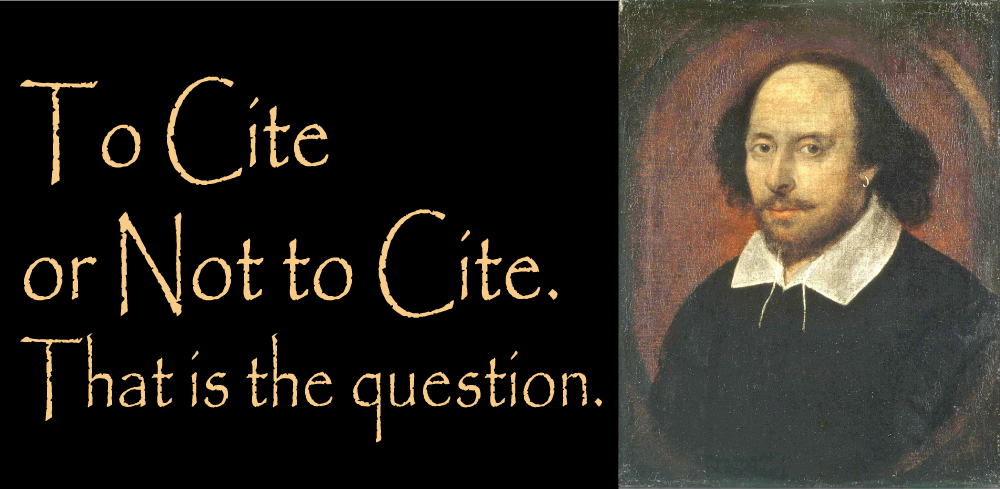To Cite:
The Words or Ideas of Another
-
If you are getting words or ideas from another person, organization, or resource, you need to cite it. This rule applies to whether you have taken information from a book, newspaper, magazine, web site, movie, television, song, letter, or otherwise
Information Gained Through Conversation or Interview
-
Citation not only applies to the written word, but even information gathered from conversations, interviews, conferences, or speeches must be cited.
Another's Images, Illustrations, Charts, or Graphs
-
Sprucing up your paper with images and graphs can be great. However, if you are borrowing images from a book, web site, or elsewhere you need to cite it.
Exact Words or Phrases
Reposting or Reusing Online Posts, Videos, Audio, etc.
-
Again, if you are borrowing information or ideas from another, it needs to be cited. This applies to information and resources gathered online, no matter the format.
|
Not to Cite:
Your Own Words and Ideas
- While it is always important to cite the words and ideas of others, you don't have to cite information that originated from your own words, pen, or brain. Therefore, as long as you came up with the idea, you are free to rant, rave, and write about it without the need for quotes or citation.
Common Knowledge or Generally Accepted Facts
- Unless quoting a line directly, you don't need to cite items of common knowledge or generally accepted fact. Therefore, you don't need to search desperately for citations on statements such as "the earth revolves around the sun", "pollution is harmful", "Obama is president", or "Chicago is located by Lake Michigan".
Your Own Experiences or Observations
- If you experienced something firsthand, you do not need to cite these experiences or observations.
Your Own Artwork, Images, or Media
- Again, if you are using your own original ideas, you don't need to cite. This also applies to your own artwork, images, or media.
|
